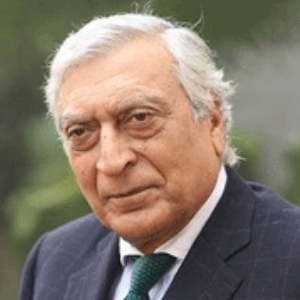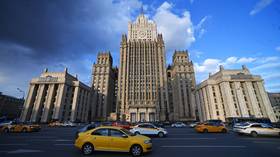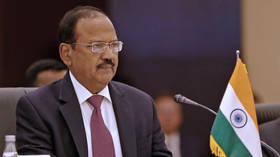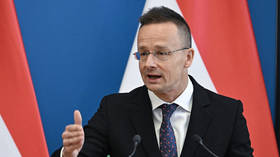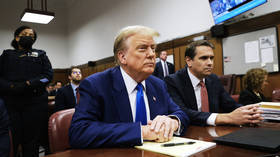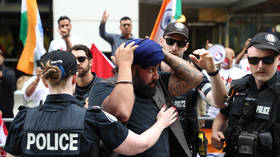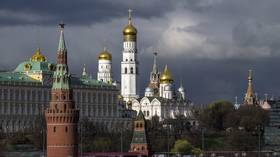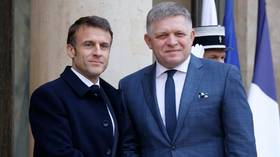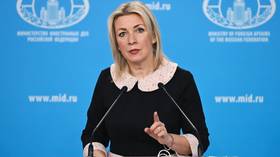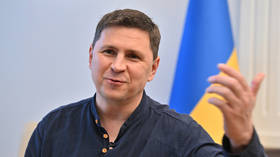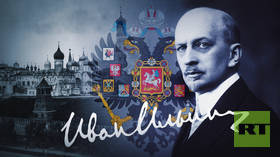Global South joining peace talks on Ukraine – a balancing act driven by pragmatism
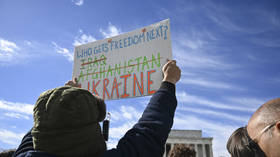
If the intention is to genuinely explore a solution to the Ukraine conflict through dialogue and diplomacy, the recent “peace talks” organized at the initiative of the West without including Russia are hardly likely to produce any breakthrough.
The meeting of over 40 nations that was held in Jeddah, Saudi Arabia, last week, and a similar conference on the Ukrainian peace plan organized in Copenhagen, Denmark, in June, with 15 countries participating, including G7 and EU members, as well as nations from the Global South such as India, Brazil, South Africa, Saudi Arabia, and Türkiye, failed to produce any substantial outcomes. Both meetings were attended by US National Security Advisor Jake Sullivan, testifying to the diplomatic push by the US to draw the Global South into discussing peace in Ukraine.
Gathering the support of major countries from the Global South for the Ukrainian peace plan was the clear purpose of both the Denmark and Saudi Arabia conclaves. The heavyweights in the Global South have largely maintained a “neutral” posture on the conflict, with many refusing to condemn Russia, support the imposition of sanctions, or back Western efforts to isolate Moscow diplomatically.
The resistance in the Global South to the historical hegemony of the West is growing. The West, no doubt, remains powerful and still controls major international political and financial institutions. The financial clout of the US cannot be ignored. The Global South would want to maintain productive ties with the West, but that does not mean subscribing to its agenda on Russia.
If Russia is defeated strategically, as is the declared goal of the West, it can only result in consolidating the West’s global hegemony at a time when the prospects of a more multipolar world are opening up. Even if the non-Western world does not approve of Russia’s military action against Ukraine and accepts that Ukrainian sovereignty and the UN Charter have been violated, it does not necessarily mean that they support the elimination of Russia as a counterpoise to Western dominance.
The Global South, with the experience of Western colonialism, is fully aware of the several instances where the West has violated the UN Charter and the sovereignty of other countries, and, contrary to what is being argued by the West, this is not the first such case since 1945. The moral argument of the West on Russia’s actions in Ukraine therefore makes little impression.
The West is frustrated with its failure to obtain the support of developing countries for its position on the Ukraine conflict, as well as its inability to persuade the non-Western world that the hostilities are not merely a European conflict, and that it has larger implications for the global order. They argue that if Russia is allowed to blatantly violate the sovereignty of a UN member state without any provocation, many weaker countries will become vulnerable to similar aggression by more powerful neighbors in the future. (That such an argument can be made unselfconsciously is surprising.)
The Denmark and Saudi Arabia meetings are the result of the determination of the US and others to persuade and pressure key countries of the Global South to engage with Ukraine, as a victim of “Russian aggression,” on its peace plan. This, they would argue, would be consistent with their position of not taking sides.
Even if these meetings do not endorse the Ukrainian peace plan in its entirety – as would undoubtedly be the case – the fact that major countries of the Global South are engaging with Ukraine can be projected as a diplomatic success for the West and a setback for Russian diplomacy, as Russia is seen as benefitting from perceptions in the Global South that the West is conducting a proxy war against it through Ukraine. Ukraine’s presidential chief of staff has, expectedly, characterized the Saudi Arabia meeting as a “huge blow to Russia.”
More importantly, if Ukrainian ideas of the road to peace are included in efforts led by the Global South to explore ways to end the conflict, this would also make it easier for the West to politically justify a recourse to the peace option. This is especially true now that it is becoming clear that the Western strategy – which involves attempting to isolate Russia, cause its economic collapse, inflict a strategic defeat, and enable Ukraine to recover enough territory claimed by Russia to force it to the negotiating table – has not succeeded.
This could be a fallback option for the West, but for the time being, there is talk that another meeting will be held with the participation of the Global South, that working groups will be formed to discuss specific points, eventually leading to a peace summit under the auspices of Ukrainian President Vladimir Zelensky.
Saudi Arabia’s statement on the meeting has no substance, mostly confined to listing the countries which participated and noting they had agreed on the importance of continuing consultations to pave the way for peace.
The central flaw in this Western strategy is that no road to peace can be opened if only one party to the conflict is its driving force. Russia was not invited to the Denmark and Saudi Arabia meetings. Unless Russia is party to any peace process, no progress can be made, unless the unrealistic assumption is that Russia will be defeated militarily and that a peaceful solution can be imposed on it. By maneuvering to have Russian President Vladimir Putin declared a war criminal by the ICC, Western leaders have made it impossible for themselves to negotiate with him. Ukraine too, under a law it has introduced, cannot negotiate with Putin.
Russia has its own concerns, especially those related to its security, and these are at the root of the conflict, however much the West tries to evade the issue by pretending that the expansion of NATO has nothing to do with Russia’s military operation in Ukraine. The Russians insist on the principle of “indivisible security” in Europe, endorsed more than once by the Commission on Security and Cooperation in Europe (CSCE), better known as the US Helsinki Commission.Russia is unwilling to cede on the issue of the incorporation of Crimea and four other predominantly Russian-speaking regions of Ukraine into the Russian Federation, as well as the issue of Ukraine’s neutral status, that is, no NATO membership.
The Russian Foreign Ministry has dismissed Ukraine’s peace plan as “a senseless ultimatum to Russia” and noted that “no meetings on the Ukraine crisis add any value without Russia’s participation or regard for its interests.” Russia wants “Ukraine’s neutral, non-bloc, and nuclear-free status” to be confirmed and the new territorial realities recognized. Russian Deputy Foreign Minister Sergey Ryabkov believes that the Saudi Arabia meeting was “a reflection of the West’s attempt to continue futile, doomed efforts” to mobilize the Global South behind Zelensky’s position.
Russia hopes that its BRICS allies and other partners who attended the meeting will share their assessments with it in keeping with existing agreements. The West has projected China’s presence at the Saudi meeting (it did not attend the Denmark gathering) as a diplomatic success, construing it as some dilution of its support for Russia. Chinese Foreign Minister Wang Yi has since spoken to his Russian counterpart, Sergey Lavrov, to state that Beijing will always take a “fair” position on the Ukraine conflict.
Knowing that the Western-led process to make Ukraine’s 10-point peace plan the basis of a potential solution to the conflict, while excluding Russia and presenting it with a consensus without Moscow participating in forging it, will lead to nowhere, the question can be asked as to why major countries of the Global South such as India, Brazil, and South Africa are attending these meetings, and why China, too, decided to attend the Jeddah gathering after it skipped theCopenhagen one.
Generally speaking, the BRICS countries of the Global South want to convey that they are interested in peace because of the serious consequences of the Ukraine conflict for developing countries and are, therefore, open to hearing all sides. As their “neutrality” is seen as tilted in favor of Russia, attending Western-sponsored meetings on the conflict can be seen as a balancing act. Relations with the US remain very important for them in many ways, and hence a degree of willingness to accommodate it on Ukraine peace talks.
A desire to diplomatically oblige Saudi Arabia, with which ties have expanded at the bilateral level, and whose stature is rising internationally under its modernizing Crown Prince, is part of the equation. China has developed close ties with Saudi Arabia. It had already proposed its own peace plan and had visited both Kiev and Moscow to “sell” it. This is part of China positioning itself as an independent actor pursuing its national interest autonomously.
India’s participation in both the Danish and Saudi meetings can be understood in light of many of these general considerations. If India advocates a recourse to dialogue and diplomacy to end the conflict, then it cannot refuse to attend a meeting ostensibly promoting a peace plan. This also provides it with an occasion to draw attention at these forums to the deleterious consequences of the conflict on developing countries. As current chair of the G20, and with the G20 summit in September in the offing, India is also obliged to play its cards with finesse.
At the Saudi Arabia meeting, the Indian national security adviser made the point that the whole world and especially the Global South was bearing the brunt of the situation, and recalled that India’s approach has been and always will be to promote dialogue and diplomacy. He noted that several peace proposals had been put forward, each with some positive points but none that was acceptable to both sides.
The key question that needed to be addressed at the Saudi Arabia meeting was whether a solution that was acceptable to all relevant stakeholders could be found. He affirmed that “India will remain an active and willing partner to find a lasting and comprehensive solution”. India thus maintained its “neutral” position at the Saudi Arabia meeting.
The statements, views and opinions expressed in this column are solely those of the author and do not necessarily represent those of RT.
